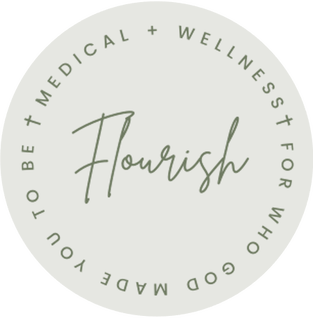How do we combat childhood obesity? National Childhood Obesity Awareness Month provides an opportunity for us to collectively address this issue.
The growing concern is that childhood obesity is no longer an isolated issue; it’s a full-fledged public health crisis. According to the Centers for Disease Control and Prevention (CDC), childhood obesity affects about 1 in 5 children and adolescents in the United States. The implications of this statistic are far more profound than mere numbers – it’s about the children who grapple with health complications, social stigma, and diminished quality of life. National Childhood Obesity Awareness Month serves as a wake-up call, urging us to recognize the urgency of addressing childhood obesity in America. By understanding the contributing factors and taking proactive steps to promote healthier lifestyles, we can pave the way for a brighter, healthier future for the younger generation. This month is not just about awareness; it’s a reminder for each family to access lifestyle and food choices. Let’s each make a commitment to foster an environment where children can grow up healthy and flourish.
Young ChildrenIndependent and active! Young children get into everything their curious hands can reach. Home safety is as important as hygiene. Check your home for hazards like stairs, water zones like pet bowls, and small toy choking risks. Let's listen to the advice of medical and dental professionals for preventative measures and childhood wellness recommendations. Steps like brushing their teeth, not overusing humidifiers, frequent hand-washing, and covering coughs are daily essentials in the well-being of your young child. TeenagersEssentials for the healthy teenager include eating right, staying active, and getting enough sleep. Easier to say than to do.... or enforce. But planning ahead and being consistent might guide your teen toward making healthy choices naturally. Offering healthy food options at home, taking family hikes, spending time unplugged in nature, and enjoying family meals together will help to create a lifestyle of wellness. Mental and emotional health play an important role in the aging process for tweens and teens. Keeping their emotional needs on your radar and being aware of drastic changes in mood is essential. Reach out to a medical professional as a resource. Supporting and encouraging your teen to become involved in sports and physical activity and visiting your dentist and doctor regularly are two great steps toward healthy aging, too. 20-SomethingsOh so wise and yet, so young - twenty-year olds feel free and youthful. But, now is the ideal time to adopt good habits that will lead to healthy aging. Establish healthy sleep habits now for physical and mental well-being. Learn to cook healthy meals at home, maintain an active lifestyle, and protect your skin with SPF every day! These habits are a great way to set the wellness course. In your twenties, you should get a physical exam every year and make your health a priority. Knowing your limitations on social activities and reducing stressful situations are needed for all age groups, but at 20-something your energy seems boundless, so you may need a reminder to practice moderation. Mid 30s-40sYour mid-thirties can be a milestone for many reasons. You might be enjoying career advancement and a larger social circle. Perhaps you've established an active lifestyle and are making better eating choices. While these things are essential for healthy living, your body is going to age at a different rate and make some major shifts in the coming years. Awareness and strategy will help you stay the course. Your diet should include more high-fiber foods as they will give you fewer years of biologic aging. And bone density is formed in our younger years, so by age 30 new bone formation is completed. We recommend annual wellness visits and labs to check your vitamin D level. Vitamin D turns into calcium in the body. The exercise routine you currently enjoy may need to change. Muscle mass decreases 3-8% per decade after age 30, so you should be adding strength training to your routine three times per week to boost your metabolism, burn fat, and remain lean. Male and female hormonal changes can begin as early as age 25, but now is when you need to pay extra attention. Many symptoms and discomforts could be a sign of increased risk for disease. Schedule a consultation with us and learn more about recommended hormone treatments and live the healthy full life God intended for you. 50+Degenerative conditions can start earlier in life, but typically 50 is the age when we see and feel dramatic changes in our body. It serves as a reminder of the importance of wellness exams for early detection and symptom diagnosis; and reinforces the value of maintaining an active lifestyle. This generation (Baby Boomers) has more 55+ active living communities available to them than any elderly generation in the past. Great resources are available to them, and the options are vast. We invite you to learn more about osteoporosis and its effects on aging. Two Important Factors on Aging(1) Prevention There is a reason why many health and medical insurance plans include free annual screenings and wellness exams. It's because they work. Early detection and diagnosis significantly improves your health and quality of life. (2) Toxin Exposure At any age, we should be concerned about our exposure to toxins. We share some frightening insights in this blog post. You may want to review it! We list specific information on the environment we are exposed to. Did you know toxins are fat soluble? It means they are stored in our fat and can remain in our bodies for years, or even decades. This causes changes in our bodies and greatly affects our aging process. Our body cannot keep up the fight without our help. Therefore, we need to avoid new exposure and actively work to remove the old toxins. Not Just Great Advice: These 10 Tips wil help maintain a healthy lifestyle, but they focus on the "staying" healthy concept. We want ot help you "start" a healthy lifestyle. The post is very inspiring and nicely outlines each area of our life as a specific focus. Actively making healthy choices in the exercise, diet, social, and mental areas of our life will support wellness. At Flourish, we'd add a spiritual focus to bring wellness into the fullness of life as God intends it: wholeness. Learn more about our team approach to your health and wholeness. And contact us with questions today.
|
Blog Categories
All
|
|
Flourish Medical + Wellness (FMW)
14070 Commerce Ave NE, Suite 300 Prior Lake, MN 55372 Phone: 952-208-7029 // Fax: 952-214-0866 Clinic Hours Monday through Thursday 8:30 - 3:30 "May you be blessed by the Lord who made heaven and earth." Psalms 115:15
|
|
©2021-2024 Flourish Medical + Wellness
|


